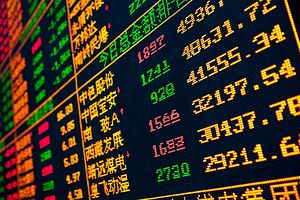The China Securities Regulatory Commission put out a statement two weeks ago that it would crack down more harshly on insider trading. Indeed, China has been prosecuting insider trading with greater vigor in recent months. It is certainly important to devote more resources to investigating insider trading cases to reduce incentives for carrying out this crime, as well as to clarify the legal language surrounding the infraction.
Before 2013, insider trading was rampant, particularly in the A-share stock market, due to the absence of an appropriate monitoring mechanism. The CSRC has become more adept at pinpointing insider trading, as a big data analysis system was put in place in 2013. At this time, the CSRC investigated insider trading among bond fund managers. Between the second half of 2013 and the end of 2014, the CSRC had flagged 125 individuals and three institutions for investigation. Former CSRC Chairman Guo Shuqing stressed that the body should have a zero-tolerance policy for insider trading and current Chairman Xiao Gang has continued this policy.
The CSRC website provides an example of an insider trading case: “In the Lin Pingzhong insider trading case, when Xiamen Insight Investment launched major asset reorganization procedures in 2013, Mr. Chen, a director at Xiamen Investment Consulting, which was the financial consultancy for the reorganization, was suspected of divulging inside information to his university tutor Lin Pingzhong. Lin then engaged in illegal trading of stocks of Xiamen Insight Investment via accounts under the names of his relatives and students, making a book profit of approximately RMB 14.7 million. Meanwhile, Lin was also suspected of divulging such inside information to others. The case was referred to the public security authority and the official investigation has been completed. At present, the case is going through the review and prosecution procedures at the procuratorate.”
Twenty cases of insider trading have been uncovered this year. In January, for example, four fund management companies, China Asset Management, Harvest Fund Management, China Universal Asset Management, and HFT Investment Management were punished for insider trading. Employees were found to have been front running, and the firms lacked the controls to prevent such behavior. The firms were prevented from issuing new mutual fund products for several months.
Still, insider trading remains a problem. While shareholder trading is banned one month before the announcement of a financial report, those who trade before the announcement may make a profit of 2.83 times that of uninformed trades, according to Zhu and Wang (2015). Insider trading is more of a problem among large shareholders in private as opposed to state-owned firms, as the former have higher levels of involvement in business operations and a stronger profit motive.
One major reason why insider trading continues to pose such a problem is that penalties are relatively light and the crime is difficult to prove. According to the law, those found guilty of engaging in insider trading can be fined up to five times the illegal gains and be imprisoned for up to ten years. The courts have generally baulked at handing down the maximum penalties, although it has been argued that simply publishing the names of insider traders has done greater damage by way of blemishing reputations. Regulators lack the resources to properly investigate the crimes, which are difficult to detect.
Moreover, legal language surrounding insider trading, written in the Securities Law of 2005 and the Regulation on the Administration of Futures Trading, is unclear, and the judicial interpretation written in the Insider Trading Interpretation is insufficient to clarify the language. For example, it is unclear who exactly is considered an insider and which bodies are to regulate insider trading, which undermines the basic understanding of the crime.
If China is to effectively combat insider trading, then, not only is it important to devote more resources to investigating and prosecuting insider trading cases, it is also essential to ensure that the legal language is clarified going forward. The CSRC’s renewed campaign against insider trading may help to attract fresh attention to this issue.

































